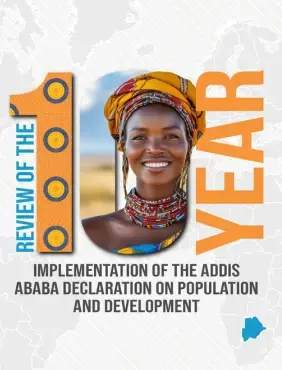Since the implementation of the Addis Ababa Declaration on Population and Development (AADPD), Botswana has made significant progress towards achieving the goals and targets of the continental framework. Poverty levels and child mortality rates have declined, women have greater representation in decision-making and gender parity has been achieved in education.
Significant challenges remain, however. Poverty levels are high in rural areas and food insecurity persists. Women and girls experience gender-based violence and child marriage, gender disparities in labour force participation and discrimination in politics. In terms of economic opportunities, high school dropout rates persist, while school attendance among people with disabilities is low. Child labour is prevalent and young people endure high unemployment rates. Child abuse is under-reported and there is a lack of comprehensive data collection systems. Older people face health challenges and undocumented immigrants lack access to services.
Efforts to address these challenges and promote inclusive and sustainable development in Botswana include tackling poverty through targeted programmes and expanding social safety nets. For females, enhancing women’s participation in decision-making and sustaining gender parity in education are crucial. Child and maternal health services need to be improved, the completion of education promoted, and unemployment tackled through youth employment programmes.
Discrimination and violence should be combated through policy enforcement, while data collection and monitoring need to be enhanced. Vulnerable groups require greater support, and inclusivity and diversity should be fostered in
development programmes.
WHO WE ARE
WHAT WE DO
Review of the 10-Year Implementation of the Addis Ababa Declaration on Population and Development

Publisher
UNFPA Botswana
Number of pages
38
Author
UNFPA Botswana
Publication
Review of the 10-Year Implementation of the Addis Ababa Declaration on Population and Development
Publication date
06 December 2024


